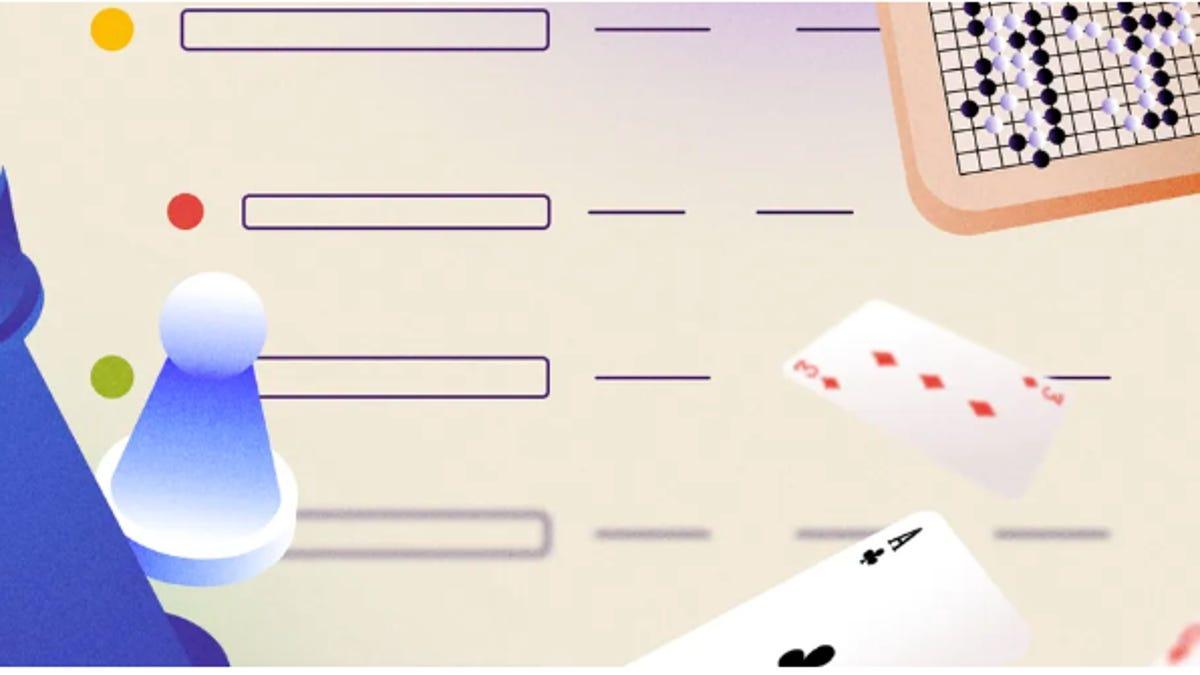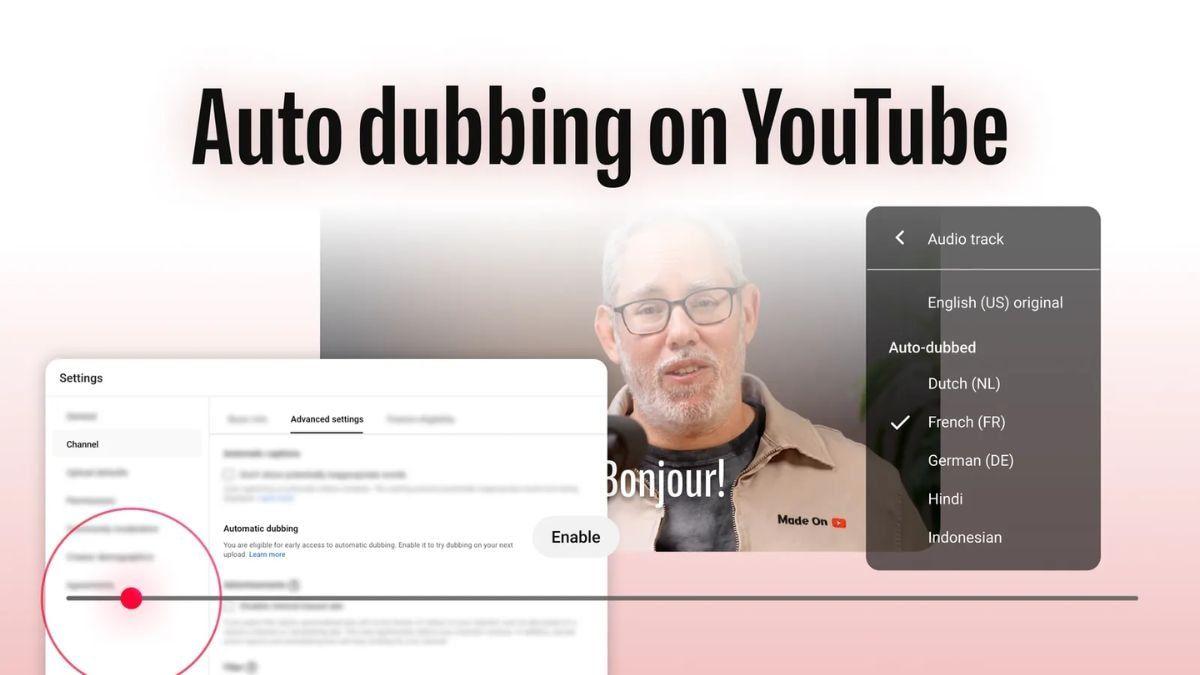Google's GenChess: AI-Powered Chess Piece Customization Brings Creativity to the Classic Game
7 Sources
7 Sources
[1]
Google's new AI tool lets you make chess as weird as you want it - for free
Google is always developing fun, experimental AI use cases and letting users explore them on its Google Labs platform. Its latest experiment allows users to reimagine chess using Google's text-to-image generation technology. Last week, Google launched GenChess, a Labs web experiment that enables users to transform traditional chess pieces into anything they imagine using a text prompt, powered by a combination of Gemini Flash and Google's latest AI model, Imagen 3. Like all of the Google Labs experiments, GenChess is free to use. Also: How to sign up for Google Labs - and 5 reasons why you should The custom chess pieces can be as elaborate or as simple as users want, with Google examples including a cactus, poodle, egg, tennis ball, rubber ducky, cactus, fuzzy pieces, and more, as seen below. Users can then use the newly designed chess pieces to play against virtual opponents. To get started, visit the GenChess standalone site or click on it from Google Labs and sign in. Once there, you'll be prompted to fill in the blanks on a sample prompt, including what you'd like your pieces to be inspired by. There is also a toggle option for "classic" or "creative" pieces, which means it will apply design to the classic structure of the piece or change the shape for more abstract pieces. For my prompt, I asked it to make a classic chess set that was inspired by Yorkies. To my surprise, it came out so much cuter than expected and with a lot more detail, including fur texture. Then, when I clicked "Generate opponent," it kept the dog theme, making the opponent Great Danes. After both sets were created, I had the option to start playing, choosing difficulty level and time. Like most online chess games, it highlights the next moves for you, but that can also be turned off in settings if you are a more advanced player. Other customization options include sound, volume, and board labeling.
[2]
Google's AI-Powered GenChess Will Let You Design Unique Chess Pieces
Users can generate chess pieces in Classic and Creative styles Google introduced a new experimental online project dubbed GenChess on Tuesday. Created by Google Labs, the tool is powered by Gemini's Imagen 3 image generation model. GenChess allows users to generate unique chess pieces based on specific user prompts. Users can also use the generated pieces to play a game of chess against the computer. The tool is primarily for fun with no commercial, academic, or utility value. However, it highlights Imagen 3's prompt adherence and ability to generate images along specific and uneven dimensions. In a post on X (formerly known as Twitter), the official handle of Google Labs announced the new experimental tool. The company said that GenChess can turn users' ideas into playable art pieces using the Imagen 3 artificial intelligence (AI) model. Notably, the tool is currently only available in select regions, and it has not been rolled out in India. There is no word on if the AI tool will be expanded to more regions. Gadgets 360 staff members were able to access the tool, which can be found here. The landing page is minimalist with a pre-written prompt visible on the screen. The prompt says "Make a Classic chess set inspired by" with a blank text field given for users to type their ideas. The Classic word can also be changed to Creative which changes the style of generation. With Classic, traditional chess pieces are generated which follow the prompted theme but retain the classic design of the pieces. In contrast, the Creative mode can generate more abstract chess pieces. Once a user is content with the generated chess pieces, they can generate random chess pieces for an opponent and then play a game with those pieces against the computer. When beginning a new game, users can choose the difficulty from easy, medium, and hard. They can also choose the 5+3 timer used in blitz and rapid plays or the classic 10-minute timer. Notably, Google is the title sponsor of the ongoing World Chess Championship 2024, and the GenChess initiative could be part of the campaign. Additionally, the tech giant has also announced its partnership with the International Chess Federation (FIDE) to showcase a digital exhibition exploring the history of chess from the sixth century to today.
[3]
Google has a new chess game that lets you design the pieces with AI
GenChess is free to play and you can redesign the pieces as many times as you like As well as being a main event sponsor of the 2024 World Chess Championships, Google has just released a free chess game called GenChess that brings something new to the table. GenChess is unique because it allows you to design the chess pieces you play with, using AI. To play GenChess, simply go to the GenChess website in your browser and start designing your chess set. You can choose either a classic or creative set and then type in an AI prompt to describe the type of set you want to see. You'll see the prompt 'Make a classic chess set inspired by' at the top of the screen, and you can complete the sentence with whatever you like. So, if you fancy seeing a chess set made of ice cream, type in 'ice cream' and hit the 'Generate' button. GenChess will then think for a few seconds as the AI generates some sample chess pieces for your approval. If you don't like what you see, hit the 'Regenerate Set' button, and it will have another go. If however you do like what you see then hit the 'Generate opponent' button to progress to the next stage. Don't be afraid to let your imagination run wild with your AI prompts, since there's no limit to how many chess sets you can design. The computer then picks a prompt to design the opponent's piece that it thinks will go well with what you've chosen already, and generates the opposing chess pieces to play against you. For example, when we typed in 'Space Soldiers' for our chess set, the computer picked 'Cyberpunk Ninjas' as a good counter set. You can now play a game of chess using the pieces, against the computer. Simply choose a difficulty level and a time for the timer, then click 'Play chess' to start. You're white and it's your go first. To design the pieces, GenChess uses the Imagen 3 image generator that is inside the latest version of Google Gemini, and which rolled out in October. At the time we said, "Imagen 3 has a range of features that are worth exploring. For example, you can ask it to create photorealistic landscapes, richly textured oil paintings, or even claymation scenes." All these powerful image manipulation features can be seen in action in GenChess. The 2024 World Chess Championships are in full swing in Singapore, running from 25 November to 13 December, where we can expect to see current champion Ding Liren defending his title against the 18-year-old challenger Gukesh Dommaraju. Sadly, they will be playing with a standard chess set, not one designed by AI.
[4]
Google gets weird with chess -- I love this new AI experiment that lets you create your own custom pieces
Google likes to experiment with artificial intelligence. We've had live DJ tools, podcast creators and a way to create custom lettering. Now its engineers have turned their sights to the world of chess with GenChess, a new experiment that lets you design custom pieces using the Imagen model. GenChess is built on top of the Imagen 3 artificial intelligence image generation model from Google DeepMind. This also powers the ImageFX experiment and image creation in the Gemini chatbot. It is a very impressive model that can create everything from photorealism to design. You can create either a classical chess set that adheres more to the original shapes, or a creative one that is a little more experimental in design. After you create your own the AI will come up with a suitable competitor set and you can play a timed game. GenChess uses AI to personalize the 1,500-year-old game by giving you a simple way to create custom sets. You can then play against the computer. It uses the Imagen 3 AI image generation model and some clever prompting techniques to customize the set. The initial prompt is fairly restrictive. Google provides the bulk of the prompt but you can switch between classic and creative, and add a descriptor at the end. My favorite part is that it also tries to create a matching opponent. When I gave it Mars as a prompt, it generated an opponent set that reflected Venus. When I gave it dogs on the beach, it gave me cats on a catwalk as the opponent. As both a millennial and someone in the chess club at school, I couldn't resist creating a set made to look like avocado toast. Google gave me bacon and eggs as an opponent. I lost the game.
[5]
This Google Chess Game Lets You Generate Unique Pieces With AI
I'm Done With Streaming Platforms: Here's Why I'm Heading Back to Cable Chess pieces have an iconic look, but what if we allowed an AI to tinker with their designs based on a given prompt? If you're wondering what such a game would look like, you'll want to check out Google's newest website that lets you generate unique chess pieces and go up against their bitter rivals. ✕ Remove Ads Google's GenChess Uses AI to Make Your Perfect Chess Pieces As part of its Google Labs initiative, the search giant released an online game called GenChess. In this game, you set your desired chess piece theme via a text prompt, which Google Gemini will use to create a full set that reflects your aesthetic. Once you've tinkered with the pieces and got them looking as you'd like, Google Gemini automatically selects and creates a counter-theme to your prompt. In my testing, if I created a set based on cats, it would use a dog-based one as my opponent. If I created an angelic aesthetic, Google Gemini would make a suitably devilish counterpart for me to play against. ✕ Remove Ads So, is it worth ditching all those chess-learning apps and going with GenChess? Maybe not. You only get three difficulty levels and a handful of timer options, and there's no way to undo your move or check a match history. But if you've always wanted a Transformers versus Decepticons chess match, head over to the GenChess website and make your dreams come true.
[6]
Google Gemini's Imagen 3 lets players design their own chess pieces | TechCrunch
Google Labs, the experimental arm of the tech giant, has introduced a new online project that offers an entertaining variation of the game of chess. The web experiment is named GenChess, which, as the name implies, uses Gemini Imagen 3, Google's image generation model, allowing players to customize their own chess pieces using text prompts. To try the game, users must sign in with a Gmail account. Once logged in, they can select the "Generate" button and type in the desired theme for their chess set, such as one inspired by sushi or pizza. GenChess offers two styles: classic and creative. The classic version resembles a traditional chess set, while the creative version is more abstract. After the model generates a complete set, players have the option to edit individual pieces. For example, if the king doesn't meet expectations, users can provide additional text prompts to refine its appearance. Once players are satisfied with their customized chess set, they can generate an opponent to play against. In our testing, Google matched our sushi-themed set with a bot's taco-inspired chess set. Players can choose between three difficulty settings (easy, medium, and hard) and two timer options (5/3 or 10/0). Google's latest web experiment is simple yet functional. A spokesperson told us it's mainly designed to "show the collaboration between AI, design, and chess, making it possible for anyone to play with image generation," they said. As part of the announcement for GenChess, Google revealed four additional chess-related initiatives coinciding with the kickoff of the World Chess Championship, which began on Monday. This includes Google's partnership with the International Chess Federation (FIDE), which invites people to take part in a coding challenge to create AI chess engines on Kaggle, a Google-owned platform for data scientists and machine learning engineers. Additionally, the Chess Gem game for Gemini will launch next month. This new conversational offering allows players to engage in chess games within the Gemini app, where they can test their skills against a language model and even engage in light-hearted banter. However, this feature will only be available to Gemini Advanced subscribers.
[7]
Google's new chess game lets you customize pieces with AI
Google has released a new chess website that puts one fun twist on the game: it uses custom pieces that are created each time by generative AI. The game starts by letting you type in a short description for what the white pieces should look like; it'll generate the set using its Imagen 3 AI model, then automatically come up with a related idea for black. When I asked for sci-fi-themed pieces for myself, it made fantasy-themed pieces for the opponent.
Share
Share
Copy Link
Google Labs introduces GenChess, an AI-powered tool that allows users to create custom chess pieces using text prompts, offering a unique and creative twist to the traditional game.

Google Introduces GenChess: AI-Powered Chess Piece Customization
Google Labs has unveiled GenChess, an innovative AI-powered web experiment that allows users to reimagine chess pieces using text-to-image generation technology
1
2
. This free tool combines Google's Gemini Flash and the latest Imagen 3 AI model to transform traditional chess pieces into unique, customized designs based on user prompts1
3
.How GenChess Works
Users can access GenChess through the standalone site or Google Labs platform
1
. The process involves:- Choosing between "classic" or "creative" piece styles
1
2
. - Entering a text prompt to inspire the design of the chess pieces
3
. - Generating an opponent's set, which the AI selects to complement the user's theme
4
. - Playing a game of chess using the custom-designed pieces
2
.
The tool offers various customization options, including difficulty levels, timers, and board settings
1
5
.AI Technology Behind GenChess
GenChess utilizes the Imagen 3 image generator, which is part of the latest version of Google Gemini
3
4
. This powerful AI model can create a wide range of visual styles, from photorealistic landscapes to richly textured designs3
. The technology demonstrates Imagen 3's ability to generate images along specific and uneven dimensions while adhering to prompts2
.Creative Possibilities and User Experience
Users have reported surprising and detailed results from their prompts. Examples include:
- Chess pieces inspired by Yorkies, with opponent pieces as Great Danes
1
. - Sets based on themes like space soldiers, cyberpunk ninjas, and avocado toast
3
4
. - Classic designs with unique twists, such as ice cream-themed pieces
3
.
The AI attempts to create thematically appropriate opponent sets, adding an extra layer of creativity to the experience
4
.Limitations and Availability
While GenChess offers a unique and entertaining experience, it has some limitations:
- Currently available only in select regions, not including India
2
. - Limited game features compared to traditional chess apps
5
. - No undo function or match history available
5
.
Related Stories
Google's Chess Initiatives
The release of GenChess coincides with Google's involvement in the chess world:
- Google is the title sponsor of the ongoing 2024 World Chess Championship in Singapore
3
. - The company has partnered with the International Chess Federation (FIDE) to showcase a digital exhibition on chess history
2
.
Conclusion
GenChess represents an innovative intersection of AI technology and the classic game of chess. By allowing users to create personalized chess pieces, Google has introduced a new level of creativity and engagement to the 1,500-year-old game
4
. While primarily designed for entertainment, GenChess also serves as a showcase for the capabilities of Google's AI image generation technology2
3
.References
Summarized by
Navi
[4]
Related Stories
Google Launches AI Chess Tournament to Showcase Language Model Reasoning Skills
05 Aug 2025•Technology

Google AI launches Project Genie to create interactive worlds from prompts for $250 monthly
29 Jan 2026•Technology

Google Unveils Whisk: A Novel AI Image Generation Tool Using Visual Prompts
17 Dec 2024•Technology

Recent Highlights
1
SpaceX acquires xAI as Elon Musk bets big on 1 million satellite constellation for orbital AI
Technology

2
French Police Raid X Office as Grok Investigation Expands to Include Holocaust Denial Claims
Policy and Regulation

3
UNICEF Demands Global Crackdown on AI-Generated Child Abuse as 1.2 Million Kids Victimized
Policy and Regulation





